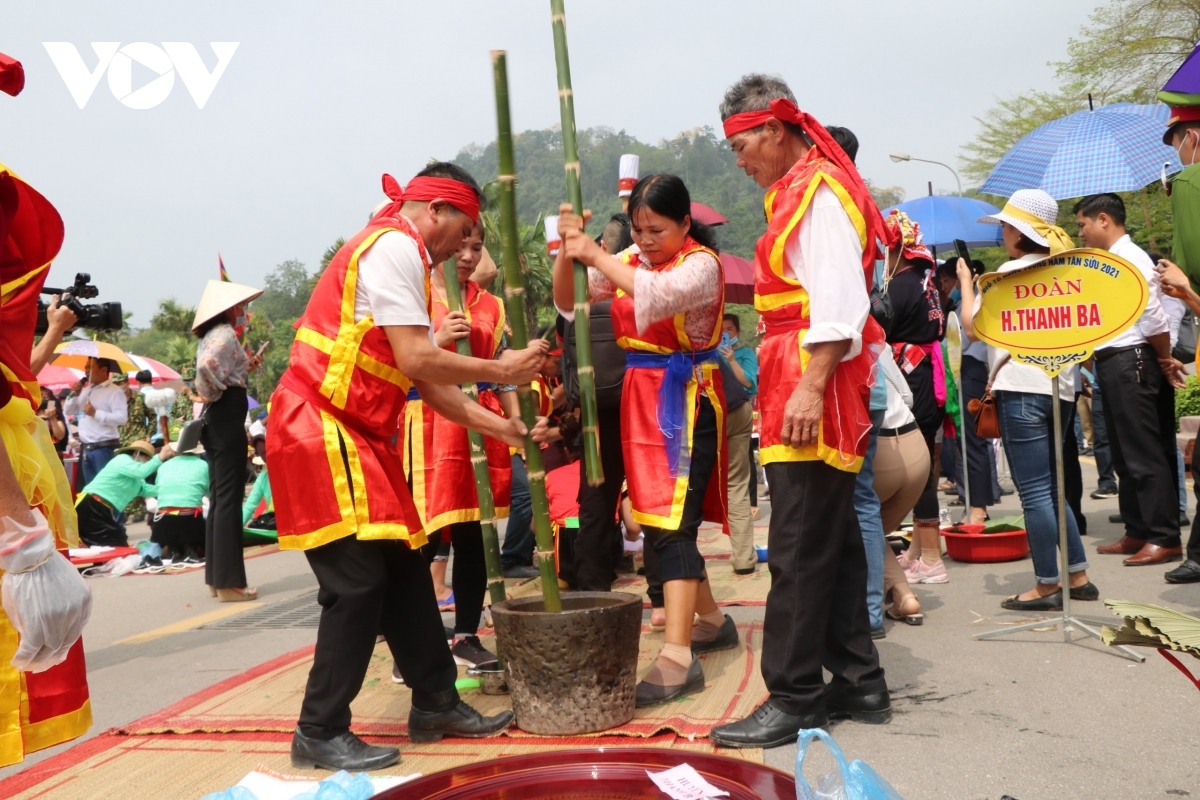Phu Tho prepares for Hung Kings Temple Festival 2023 next month
VOV.VN - The northern province of Phu Tho is set to organise a festival commemorating the death anniversary of the Hung Vuong, known as the Hung Kings, at the Hung Temple on Nghia Linh Mountain in late April.
As many as 20 activities will be held during the course of the festival, with the highlight being an opening ceremony of the Hung Kings Temple Festival and the Week of UNESCO-listed intangible cultural heritages at Hung Vuong square held in Viet Tri city on April 21.
An international conference on tourism, culture, heritage, and sustainable development in Vietnam jointly organised by the Association of Vietnamese Scientists and Experts (AVSE Global) and the administration of Phu Tho will also be held.
The event will include incense offering ceremonies to the nation's legendary father Lac Long Quan and the nation's legendary mother Au Co, as well as to the Hung Kings at the Hung Kings Temple historical heritage site on Nghia Linh Mountain in Phong Chau district of Phu Tho province. In addition, flower offerings will take place at the monument to President Ho Chi Minh.
The festive activities will include a swimming competition held at Van Lang Park, football, volleyball, and cycling tournaments, a fair on local products in northeastern region, an Ao Dai (long dress) fashion show, and a number of art programmes.
Traditional contests making Banh Chung (square sticky rice cake) and Banh Day (round glutinous rice cake) will also get underway to attract festival-goers.
The Hung Kings Temple Festival is held annually from the first to the 10th day of the third lunar month, falling on April 20 to April 29 this year.
The traditional festival honours the Hung Kings who are the Vietnamese people's ancestors and are believed to have ruled the country for 18 generations.
The worship of the Hung Kings is closely related to the ancestral worship traditions of most Vietnamese families and was officially recognised as part of the Intangible Cultural Heritage of Humanity by UNESCO back in 2012.

